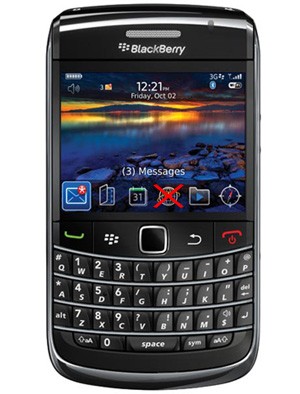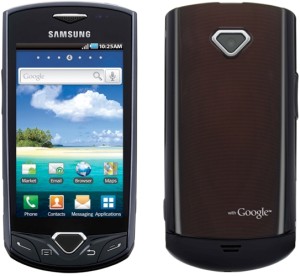Regulators in the United Arab Emirates said Sunday they would prohibit BlackBerry email, instant-messaging and Internet-browsing services starting in October, after what officials in the country said has been a long-running dispute with the device’s maker about how it stores electronic data……
Looks like those regulators over in the Middle East don’t mess about. Following this week’s revelation that the United Arab Emirates’ telco overseers weren’t happy with being unable to monitor how people were using their BlackBerrys, today we’re hearing what their solution to the problem will be: an outright ban. Internet access, email and instant messaging on RIM devices will be blocked in the UAE starting this October.
The U.A.E. market is relatively small for Canada’s Research In Motion Ltd., which makes the BlackBerry smartphone. But the suspension comes amid unease by at least one other government, India, over the inability to monitor or review electronic communications via the device in criminal, terrorist or national-security investigations. A Saudi Arabian official said the Communications and Information Technology Commission ordered telecommunications firms to block BlackBerry messaging services later this month, according to Zawya Dow Jones. The official didn’t explain the decision.
The U.A.E. ban, due to start Oct. 11, was the result of the “failure of ongoing attempts, dating back to 2007, to bring BlackBerry services in the U.A.E. in line with U.A.E. telecommunications regulations,” the country’s Telecommunications Regulatory Authority said Sunday. Some BlackBerry services “operate beyond the enforcement” of current telecommunications regulations in the country, the government said.
BlackBerry data is immediately exported offshore, where it’s managed by a foreign, commercial organization. Blackberry data services are currently the only data services operating in the U.A.E. where this is the case,” the government’s statement said. “Today’s decision is based on the fact that, in their current form, certain BlackBerry services allow users to act without any legal accountability, causing judicial, social and national-security concerns.
A RIM spokeswoman told the Associated Press that the company had no immediate comment on the move.According to a person familiar with the situation, the U.A.E. acted after RIM refused to set up a proxy server in the country. A local server would allow the government easier access to the encrypted communications data sent by BlackBerry users in the country, the person said.
Messages sent to and from a BlackBerry are processed at RIM’s network-operating center in Canada. They are encrypted on the device before being sent and remain encrypted until they reach their destination.Another person familiar with the matter said a key worry for U.A.E. officials was that BlackBerry’s messenger service was effectively untraceable. That could be a problem if RIM failed to hand over data sought in a criminal or terrorist probe.
“If the U.A.E. government need this information, for criminal cases, they are unable to access it because the culprits used BlackBerry messenger service,” the person said. “There’s tons of information going in and out of the country which is now unmonitored.”Last week, a senior Indian official said BlackBerry’s encryption makes monitoring of its network impossible, and creates a security threat. The Indian government, which is negotiating with RIM about the issue, has warned the company that its operations will be closed down unless the company addresses the concerns.
The U.A.E. government last week, in an unusual statement, said RIM’s BlackBerry was a potential threat to national security. One person familiar with the situation said Sunday that U.A.E. officials also view the problem as a contractual issue.Part of RIM’s original contract with Emirates Telecommunications Corp., or Etisalat, the country’s biggest telecommunications provider, to offer BlackBerry service in 2007 included a clause that the Canadian company would find a technological solution to the government’s data-security concerns, according to this person. From the U.A.E.’s point of view, that meant setting up proxy servers in its territory that would allow regulators and security officials easier access to data sent by BlackBerry users, the person said.
BlackBerry, which commands around 20% of the global smartphone market, has an estimated 500,000 users in the U.A.E. The government doesn’t plan to ban smart phones made by the company’s two global competitors, Nokia Corp. and Apple Inc., said the Both of the country’s carriers, Etisalat and Dubai-based Emirates Integrated Telecommunications Corp., or Du, said they would comply with the ban. Etisalat said it would soon unveil a range of alternatives.person familiar with the situation.
Both of the country’s carriers, Etisalat and Dubai-based Emirates Integrated Telecommunications Corp., or Du, said they would comply with the ban. Etisalat said it would soon unveil a range of alternatives.The ban is the latest twist a long-running battle between the U.A.E. and RIM. Last year, RIM notified BlackBerry users in the U.A.E. that an application that Etisalat had told its clients was a technical upgrade to their service was, in fact, spyware. Users that had downloaded the patch had complained of disruption in email and other services. After the RIM statement was published, Etisalat offered its clients directions on how do disable the software.
Of course, that the Canadian phone maker doesn’t do something in the meantime to appease the authorities. Saudi Arabia is similarly peeved with the BBM service, which it intends to shut down later this month. And just in case you were wondering why all this drama is taking place, the BBC cites a Saudi Telecom board member as admitting it’s designed to pressure RIM into releasing users’ communication data “when needed.” Charming.
Resources :engadget.com,online.wsj.com






Pingback: Private Servers